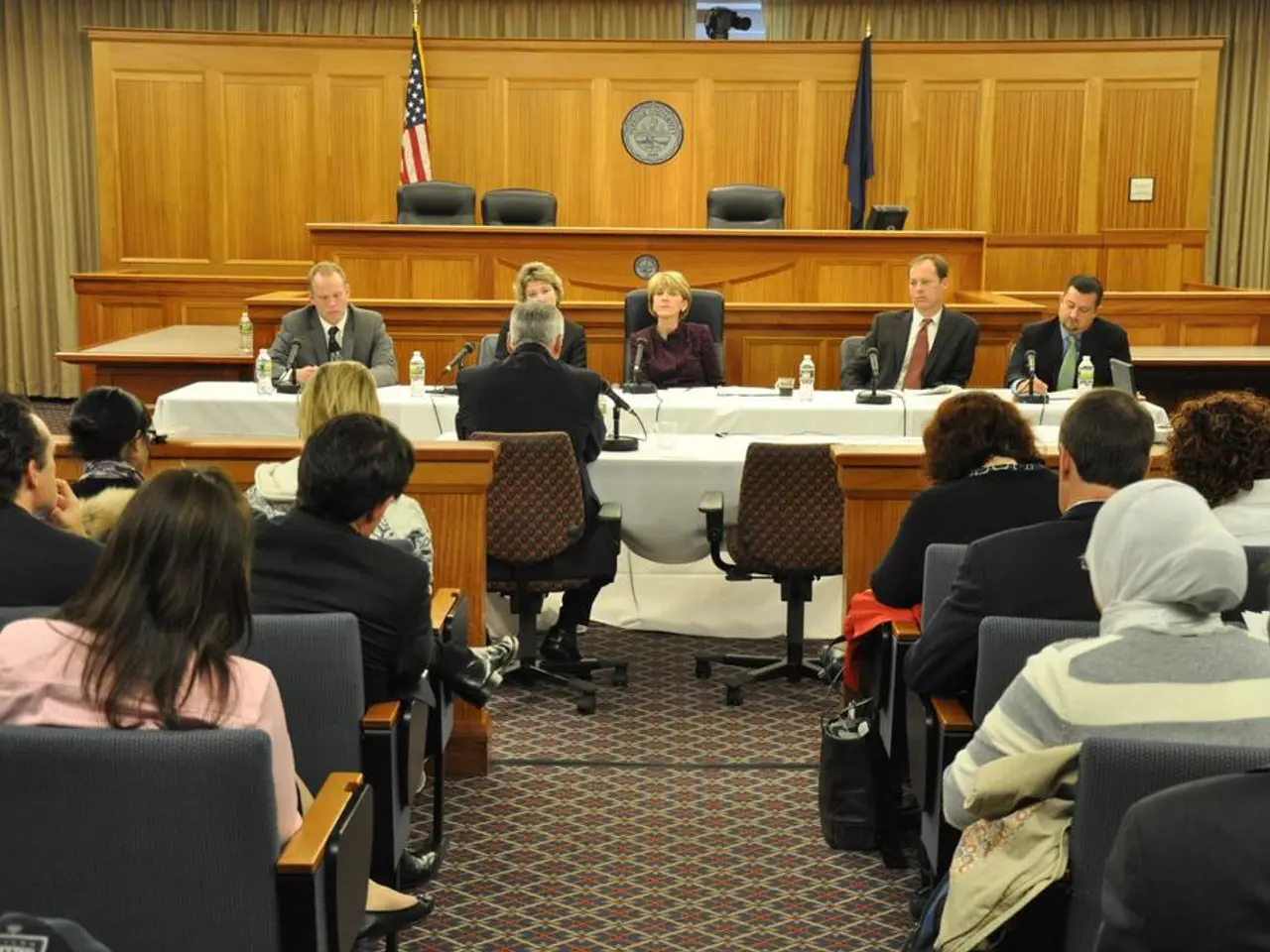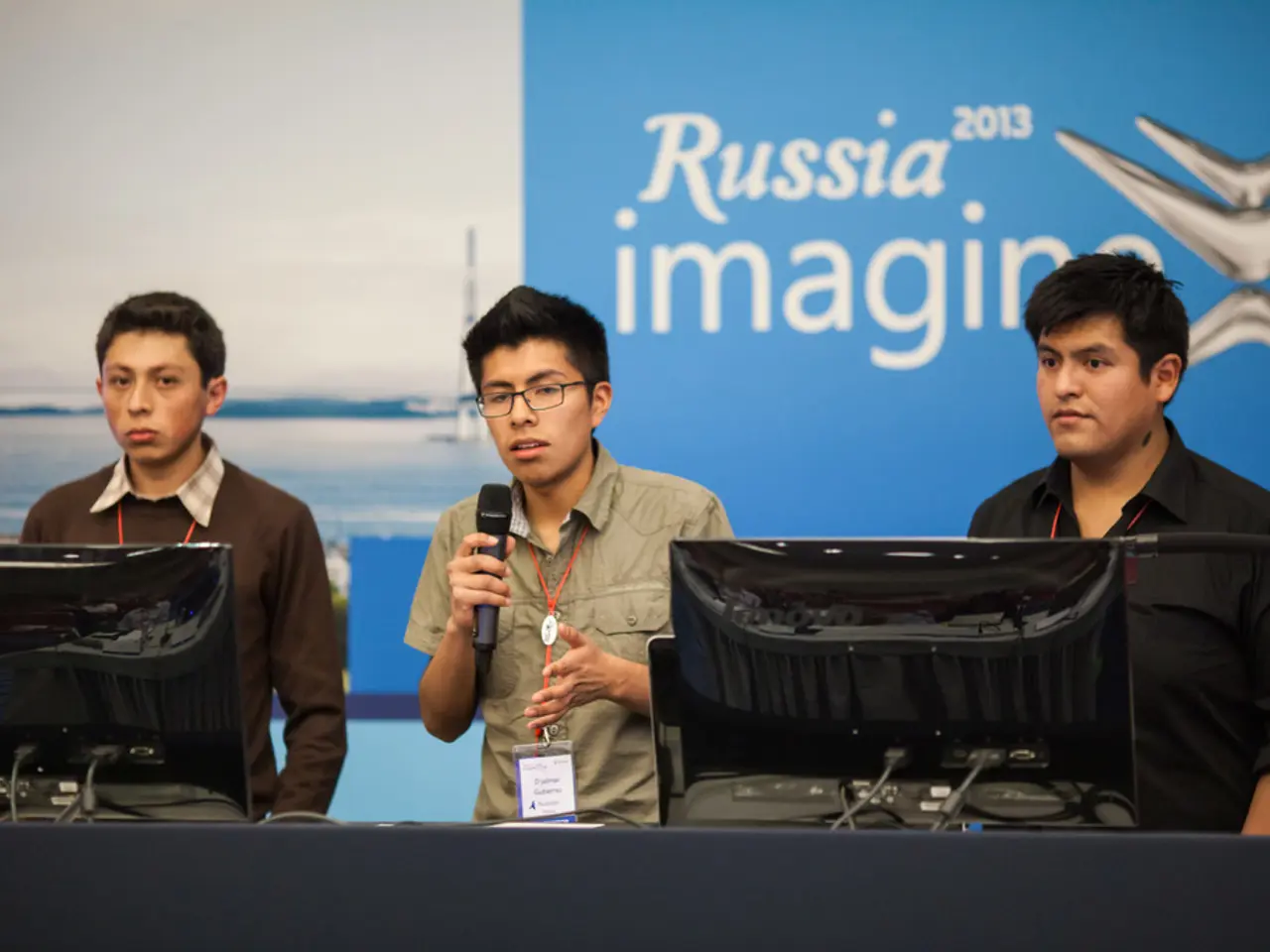Democratic party division arises over a resolution alleging Israel of committing genocide, in a critical swing state
The North Carolina Democratic Party has found itself embroiled in an internal dispute following the passage of a resolution calling for an embargo on military aid and weapons transfers to Israel. The resolution, which was passed by a narrow margin on June 28, 2025, has caused significant divisions, particularly among Jewish Democrats in the state.
The resolution, which is the only example that explicitly calls for an embargo on military aid and weapons transfers and accuses the state of committing genocide and apartheid, was passed by the party's executive committee by a vote of 161-151. The language of the resolution has drawn sharp criticism, with Rabbis and Jewish community leaders contending that it is heavily one-sided because it omits any mention of the October 7, 2023, Hamas attacks on Israel that killed around 1,200 people or the taking of hostages.
The resolution reflects evolving views within the Democratic Party on Israel, with advocates arguing that military funding to Israel would be better spent on American domestic needs. However, critics argue that the resolution is an example of extreme anti-Israel rhetoric and antisemitism within the party. Chair Anderson Clayton of the state party reportedly abstained from the final vote, highlighting the contentious nature of the issue.
The resolution's passage has caused deep divisions, with some party members worried that it will make it harder to compete in a race to regain Senate control. According to a May survey from the Chicago Council on Global Affairs, Democrats younger than 45 are less likely than their older partisan peers to favor the US supporting Israel militarily.
The resolution has also garnered national attention, with similar resolutions passed in Wisconsin and Washington state. The resolution's backers are talking to Democrats in other states who want to take the same stand. Alan Smith, a lead sponsor of the resolution and a member of the state party's progressive caucus, argues that passing the resolution shows the party is responsive to the will of Democratic voters.
However, opponents of the resolution, such as Lisa Jewel, president of the state Democratic party's Jewish Caucus, condemn it as divisive and urge leadership to block the effort. Mark Bochkis, who leads communications for the Jewish Democrats, moved to Greensboro as a child from the former Soviet Union and has family living in Israel. Bochkis believes the resolution represents the new direction of the North Carolina Democratic Party and that the Jewish Caucus represents a view that they are moving past.
The timeline for when the party platform will be voted on is unclear, with some in the party worried that the disunity will make it harder to compete in a race to regain Senate control. Rep. Don Davis, a Democrat on the House Armed Services Committee who could also mount a Senate run, reaffirmed his commitment to Israel as an ally of the United States. Top state leaders, notably the party chair and North Carolina's Democratic governor, have declined to comment on the resolution.
The Israel-Hamas war is still dividing the Democratic Party as it did before the November election. The broader political context includes ongoing international debates about Israeli foreign policy and responses to Hamas’ attacks. Israel’s government has formed a war cabinet amid political turmoil to address the conflict, but questions remain about the objectives and implications of Israel’s military actions in Gaza.
In summary, the North Carolina Democratic Party’s resolution on an arms embargo to Israel has caused significant internal strife, especially between Jewish Democrats and party leadership, complicating efforts for unity. It has also had impacts on party image and election-related dynamics due to accusations of one-sidedness and antisemitism. The resolution represents a shift in many Democrats’ attitudes towards Israel amid the war and has garnered national attention as a leading example of state-level Democratic alignment on restricting military aid to Israel. State leaders continue to navigate these divisions, with some choosing to abstain from votes and others calling for collaboration amid discord.
The resolution's controversial language, focusing on an arms embargo to Israel and alleging genocide and apartheid, has drawn criticism from Rabbis, Jewish community leaders, and opponents within the party, who argue it omits context and represents extreme anti-Israel rhetoric and antisemitism.
The passage of the resolution has sparked national attention, with similar resolutions passed in other states, as proponents contend it demonstrates the party's responsiveness to voters, while opponents condemn it as divisive and damaging to the party's image and election prospects.






